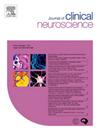Mind the Gap: Social media analysis of 38,609 posts highlights discrepancies between clinical focus and patient priorities in neurosurgical care
IF 1.8
4区 医学
Q3 CLINICAL NEUROLOGY
引用次数: 0
Abstract
Objective
To analyze social media discussions among cranial neurosurgical patients to identify prevalent concerns, emotional patterns, and quality of life impacts that may not be fully captured in traditional clinical assessments.
Methods
We analyzed 38,609 neurosurgery-related posts from Reddit using natural language processing and the Valence Aware Dictionary and sEntiment Reasoner (VADER) sentiment analysis tool. Posts were categorized into clinical domains (symptoms, conditions, procedures, treatments, complications, quality of life, and clinical course), with sentiment scores calculated for each category. Co-occurrence analysis identified significant term associations. Statistical comparisons used Mann-Whitney U tests with Benjamini-Hochberg correction.
Results
Patient discussions predominantly focused on symptoms (63.56 % of posts) and quality of life impacts (45.93 %), with work/education concerns (25.99 %) and headache-related complaints (32.10 %) being most prevalent. Cognitive symptoms appeared in 19.78 % of posts, while epilepsy-related terms dominated condition discussions (23.04 %). Sentiment analysis revealed a significant contrast between symptom discussions (mean sentiment: −0.007) and treatment discussions (0.056, effect size d = 0.27, p < 0.001), with medication/therapy discussions showing the most positive sentiment across all categories. Surgical procedure discussions, while infrequent (7.41 %), maintained positive sentiment (0.031), suggesting patients may find reassurance in definitive interventions. Quality of life concerns showed substantial prevalence but received limited attention in clinical literature, with transportation/independence issues (10.09 %) and financial/insurance concerns (6.91 %) showing significant associations with treatment and procedure discussions, respectively. Anxiety terms demonstrated the strongest association with clinical course discussions (φ = 0.093), while condition-specific terminology showed robust co-occurrence patterns (e.g., “Chiari-malformation,” φ = 0.69).
Conclusions
This analysis reveals important disparities between traditional clinical priorities and patient-reported concerns in neurosurgical care. The negative sentiment surrounding symptom discussions contrasted with treatment optimism suggests opportunities for improved symptom management approaches. The high prevalence of work, education, and independence concerns highlights the need for comprehensive support services addressing functional outcomes. Implementation of enhanced symptom management strategies, psychological support services, and structured rehabilitation programs may help bridge the gap between clinical care and patient priorities in neurosurgical practice.
注意差距:对38,609个帖子的社交媒体分析强调了神经外科护理中临床重点和患者优先事项之间的差异
目的分析颅神经外科患者的社交媒体讨论,以确定传统临床评估中可能无法充分捕捉的普遍关注点、情绪模式和生活质量影响。方法使用自然语言处理和Valence Aware Dictionary and sEntiment Reasoner (VADER)情感分析工具对Reddit上38609篇神经外科相关帖子进行分析。将帖子分类为临床领域(症状、条件、程序、治疗、并发症、生活质量和临床过程),并为每个类别计算情绪得分。共现分析确定了显著的术语关联。统计比较采用Mann-Whitney U检验,benjamin - hochberg校正。结果患者主要讨论症状(63.56%)和生活质量影响(45.93%),其中工作/教育问题(25.99%)和头痛相关投诉(32.10%)最为普遍。认知症状出现在19.78%的帖子中,而癫痫相关的术语在病情讨论中占主导地位(23.04%)。情绪分析显示症状讨论(平均情绪:- 0.007)和治疗讨论(0.056,效应量d = 0.27, p <;0.001),药物/治疗讨论在所有类别中都显示出最积极的情绪。手术过程的讨论虽然很少(7.41%),但保持积极的情绪(0.031),这表明患者可能会在明确的干预措施中找到安慰。生活质量问题普遍存在,但在临床文献中得到的关注有限,交通/独立问题(10.09%)和财务/保险问题(6.91%)分别与治疗和程序讨论有显著关联。焦虑术语显示出与临床课程讨论的最强关联(φ = 0.093),而特定病症术语显示出强大的共现模式(例如,“Chiari-malformation”,φ = 0.69)。结论本分析揭示了神经外科护理中传统的临床优先事项与患者报告的关注点之间的重要差异。围绕症状讨论的负面情绪与治疗乐观主义形成对比,表明改善症状管理方法的机会。对工作、教育和独立的高度关注突出了对功能性结果的综合支持服务的需求。在神经外科实践中,强化症状管理策略、心理支持服务和结构化康复计划的实施可能有助于弥合临床护理和患者优先事项之间的差距。
本文章由计算机程序翻译,如有差异,请以英文原文为准。
求助全文
约1分钟内获得全文
求助全文
来源期刊

Journal of Clinical Neuroscience
医学-临床神经学
CiteScore
4.50
自引率
0.00%
发文量
402
审稿时长
40 days
期刊介绍:
This International journal, Journal of Clinical Neuroscience, publishes articles on clinical neurosurgery and neurology and the related neurosciences such as neuro-pathology, neuro-radiology, neuro-ophthalmology and neuro-physiology.
The journal has a broad International perspective, and emphasises the advances occurring in Asia, the Pacific Rim region, Europe and North America. The Journal acts as a focus for publication of major clinical and laboratory research, as well as publishing solicited manuscripts on specific subjects from experts, case reports and other information of interest to clinicians working in the clinical neurosciences.
 求助内容:
求助内容: 应助结果提醒方式:
应助结果提醒方式:


